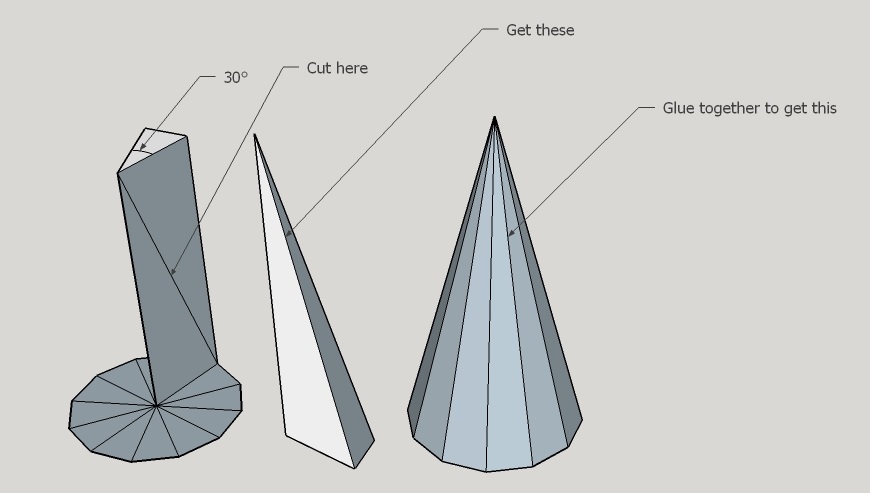If you don't have access to a lathe, you can cut a series of wedges with a band saw and/or a table saw. connect them all together in an "almost cone" and sand down the edges until it's fairly conical. The narrower your wedges, the more conical you'll get. The angle for each wedge is easily calculated. Where N is your number of wedges, 360/N gives you the inner angle.
From here you have a near-conical blank. You can either sand down the edges or use a router jig like in this video: a spindle in a box with a router sliding on top. To get a cone, you could angle the spindle. Perhaps if you wanted to get fancy, you could make the spindle adjustable to make different angled cones/tapers.
TX Turner's comment has another good reference for a jig meant to go on a lathe which could be modified to do tapers, but I don't think it would be too difficult to fabricate something similar as a standalone contraption.
In short:
1: Cut a bunch of wedges from rectangular blocks. If you glued them together at this stage, it would make a near-cylindrical drum.
2: make a diagonal cut into each wedge to make the triangular size of the cone you need.
3: Glue them together into a conical blank.
4: Sand the corners down or use a router jig.

As I mentioned in a comment, I would not recommend trying to make a DIY lathe. To me that seems like an attempt for the Darwin Awards.